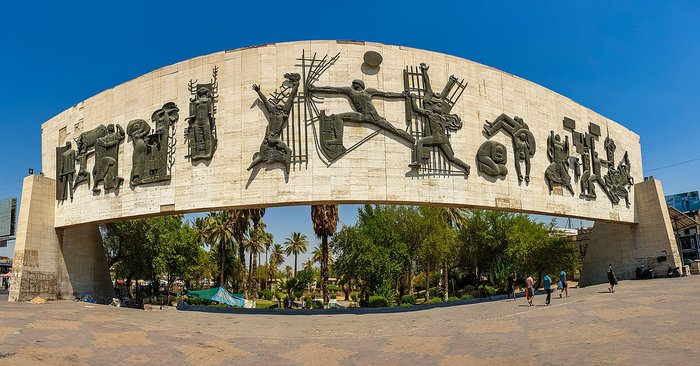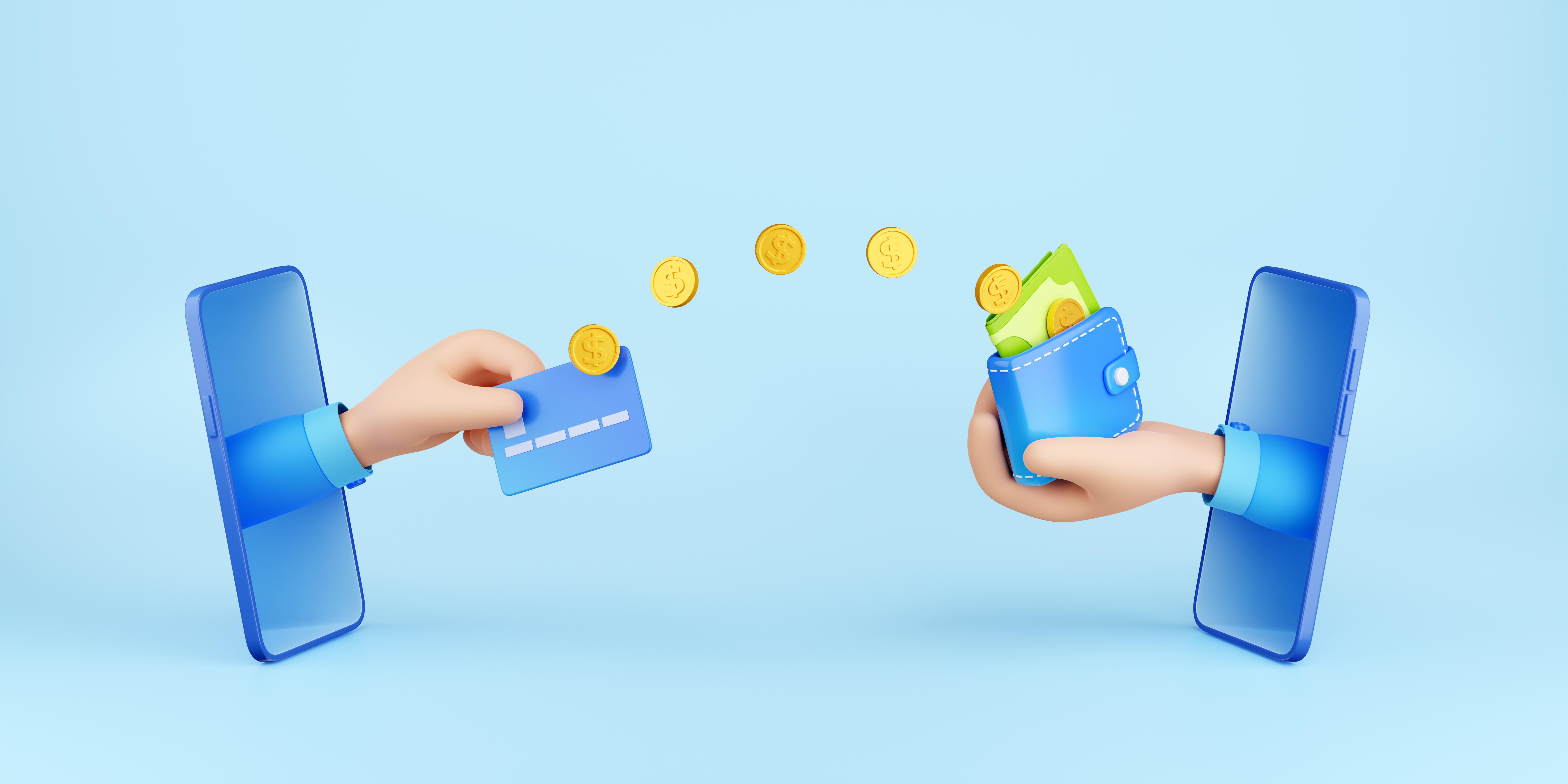Rakiiz | 21 Aug 2025
Future of Digital Payments in Iraq: 2025 Outlook
Iraq is shifting from cash to clicks. Discover how fintech, mobile wallets, and Rakiiz are transforming money transfers, challenges, and future trends.
.jpg)
Today, money in Iraq moves in ways that feel caught between two worlds. On one side stand the traditional systems—banks with long queues, piles of paperwork, and transfers that can take days. On the other side rises a new digital horizon: sleek e-wallets, cross-border apps, and fintech platforms promising speed, transparency, and accessibility.
The stakes are high. Millions in Iraq rely on money transfers—whether to support families, settle business payments, or cover everyday costs. A student in Baghdad paying tuition in Dubai, a merchant in Basra clearing invoices with suppliers in Sharjah, or a family sending support across borders—all need a fast, reliable, and affordable channel.
The transformation is already underway. Technology is rewriting the rules of how money moves in and out of Iraq, led by fintech innovations such as Rakiiz.
The Digital Shift: From Cash to Clicks
For decades, cash dominated Iraq’s financial landscape. Transactions were face-to-face, money handed over directly. But in the past five years, several forces have accelerated the adoption of digital payments:
-
Smartphone penetration has given millions access to apps and online platforms.
-
Improved internet connectivity, though uneven, has laid the foundation for fintech innovation.
-
Government initiatives, led by the Central Bank of Iraq, have pushed for financial literacy and encouraged citizens and businesses to move away from a cash-only mindset.
The result? A cultural and technological shift. Iraqis are increasingly comfortable sending, receiving, and paying through screens—rather than bank counters.
How Technology Redefined Money Transfers
Digital platforms did not just replace old systems; they redefined what transfers mean. Four pillars illustrate this change:
-
Speed: Transactions that once took 3–5 business days now settle in minutes.
-
Cost: Fintech platforms often offer lower fees and better exchange rates than banks.
-
Security: With advanced encryption and fraud monitoring, digital transfers are safer than carrying cash.
-
Flexibility: Unlike rigid banks, digital services allow multiple options—bank deposit, cash pickup, or e-wallet transfer.
This flexibility is vital in Iraq, where many still lack access to traditional bank accounts.
The Rise of E-Wallets
If there is one symbol of Iraq’s digital payment revolution, it is the e-wallet. These apps transform a phone into a mini bank—storing money, paying bills, and transferring funds instantly.
-
For youth: E-wallets are a gateway into the digital economy, free from the burden of cash.
-
For families: They simplify receiving remittances from abroad at lower costs.
-
For businesses: They reduce risks tied to cash handling and streamline payments.
As adoption spreads, Iraq joins a global wave where digital solutions are becoming the default.
Rakiiz: A Case Study in Iraq’s Fintech Future
Amid this transformation, Rakiiz has emerged as a platform built specifically for transfers between Iraq and the UAE. Unlike global players such as Wise, Revolut, or Western Union, Rakiiz is tailored to Iraq’s unique realities:
-
Faster transfers—sometimes within minutes.
-
Transparent pricing—no hidden fees; everything disclosed upfront.
-
Competitive exchange rates—ensuring more value reaches the recipient.
-
Multiple payout options—direct bank deposit, instant wallet transfer, or secure cash pickup.
For Iraqis, Rakiiz is more than a transfer service—it is a bridge. It connects families across borders, supports small businesses, and delivers a modern digital experience with trust at its core.
Why Banks and Traditional Services Are Losing Ground
The rise of Rakiiz and similar fintech platforms is easier to understand when looking at the weaknesses of traditional players:
-
Banks:
-
Slow (days-long transfers).
-
Expensive (high fees and weaker exchange rates).
-
Complicated (paperwork and mandatory branch visits).
-
-
International money transfer companies:
-
Faster than banks, but often add extra charges—especially for cash pickups.
-
Offer less competitive exchange rates.
-
Depend on physical branches, which are inconvenient for many.
-
Fintech, in contrast, offers the middle ground: the reliability of institutions with the speed of technology.
Challenges Ahead for Iraq’s Digital Payment Revolution
The road to a fully digital economy in Iraq is not without hurdles. Three main challenges remain:
Infrastructure Gaps
Despite smartphone growth and internet expansion, many regions still lack reliable connectivity—limiting access to digital platforms, especially in rural areas.
Solution: Investment in nationwide broadband, expanded 4G/5G coverage, and stronger public-private partnerships to ensure accessibility.
Financial Culture & Trust
Cash remains the “comfort zone” for many Iraqis, seen as more tangible and trustworthy due to historical skepticism toward financial institutions.
Solution: Launch financial literacy campaigns, share success stories of digital adoption, and provide strong customer support to build trust gradually.
Regulatory Framework
Iraq’s fintech regulations are still evolving. Ambiguous rules may slow innovation and deter companies from scaling.
Solution: Develop balanced regulations that encourage innovation, protect consumers, and ensure fair competition between banks and fintech.
Looking Beyond 2025
What does the future hold for digital payments in Iraq? Signs are promising:
-
Wider adoption of e-wallets, especially among youth.
-
Instant cross-border transfers becoming as simple as sending a WhatsApp message.
-
Integration of blockchain and AI for enhanced security and efficiency.
-
Local fintech leaders, like Rakiiz, expanding into new remittance corridors.
A country long dominated by cash is poised to become a digital player aligned with global financial trends.
Conclusion: Iraq’s Leap Forward
The story of digital payments in Iraq is still unfolding, but the direction is clear. Technology is removing barriers, cutting costs, and offering people faster, fairer, and safer ways to move their money.
-
For families, it means support arrives on time.
-
For businesses, smoother trade with fewer delays.
-
For students, patients, and professionals, greater opportunities without outdated restrictions.
At the heart of this transformation stand platforms like Rakiiz, not just copying global models, but tailoring services to Iraq’s reality.
The future of money in Iraq will no longer be measured in banknotes and coins—but in clicks, transfers, and the trust that digital technology delivers.
How to Send Money Abroad Safely from Iraq
A complete guide to sending money abroad from Iraq safely and efficiently. Learn...
Rakiiz | 21 Aug 2025
Hidden Costs of International Transfers from Iraq
Learn the hidden costs Iraqis face when sending money abroad: bank fees, exchang...
Rakiiz | 21 Aug 2025
5 Common Mistakes When Sending Money Abroad from Iraq
Learn the 5 common mistakes Iraqis make when sending money abroad and how Rakiiz...
Rakiiz | 21 Aug 2025


.jpg)